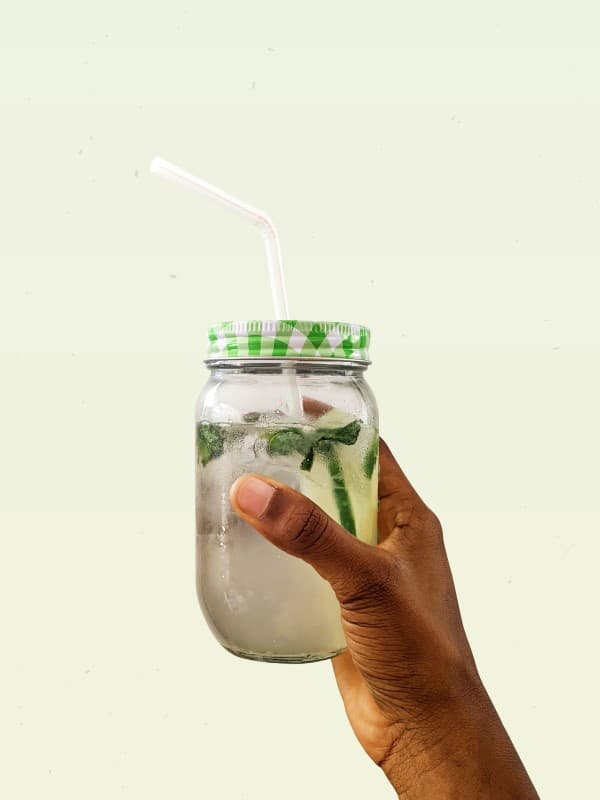How to Maintain a Healthy Electrolyte Balance
Staying hydrating is essential to optimum health but sometimes you may need more than just water to bounce back. Read on to learn how to avoid electrolyte imbalances and signs to watch out for.
We all need electrolytes. It's actually key to our bodily functions. Our bodies rely on small electric currents flowing throughout us to survive. Electrolytes provide this charge by interacting with each other and cells in our tissues, nerves, and muscles. Electrolytes are essential for:
-
Controlling fluid balance
-
Regulating blood pressure
-
Helping muscles contract
-
Maintaining the correct blood pH
Common electrolytes include sodium, chloride, potassium, magnesium and calcium. However, when electrolyte imbalances are present, we often must supplement these minerals in order to not only rehydrate our bodies but improve our body's functioning.
Electrolyte Imbalances
An electrolyte imbalance can occur when the body is carrying too many or too little electrolytes. This is often caused by either over-hydration or dehydration. When dehydration occurs, electrolytes are often lost through vomiting, diarrhea, over-sweating, kidney problems, medications, eating disorders, and more. Symptoms of electrolyte imbalances include:
-
Nausea
-
Lethargy
-
Fluid retention/bloating
-
Severe muscle weakness
-
Rapid or irregular heartbeat
-
Seizures
-
Chest pains
Consult a doctor if you are experiencing any of the above symptoms to receive rehydration treatment. Rehydration, the treating of electrolyte imbalances, involves either restoring levels if they are too low. This is typically done through electrolyte supplementation.
Another treatment option requires reducing concentrations that are too high. Treatment for high-levels of electrolytes depend on the cause of the excess and the severity of the electrolyte imbalances. If able, it is often best to replenish levels over an extended period of time.
Rehydration
While the more mild causes of electrolyte imbalances, like vomiting and diarrhea, are usually not serious conditions, following a proper rehydration protocol may be necessary for more serious causes. Consult a doctor for the best procotol for you and your family.
The American Academy of Pediatrics recommends an oral rehydration solution at the first signs of illness to prevent dehydration. These solutions contain a mix of water, carbohydrates, and electrolytes in specific proportions that are easy to digest.
Electrolyte Supplements
These supplements, often marketed as sports drinks, come in tablets, powders, and liquid forms. Not all electrolyte drinks are created equal though. A standard electrolyte drink contains 14 grams of sugar, 100 milligrams of sodium, and 30 milligrams of potassium in an 8-ounce serving. There are also specialty electrolyte drinks for endurance and ultra-endurance athletes that contain higher levels of potassium and sodium, as well as additional minerals like magnesium and calcium.
Here are a few locally-made, low-sugar electrolyte brands to sample:
- Hydromom by Boobie
A favorite amongst prenatal and postnatal women, Hydromom is a superfood electrolyte mix perfect for any mom on the go.
- GoodOnYa Hydrate Powder
Along with tasty treats and organic eats, this Encinitas cafe also sells a popular Hydrate electrolyte and mineral powder, boasting only 1 gram of sugar. - Hydralyte
La Jolla-based Hydralyte offers ready-made electrolyte drinks, plus tablets and powders for on-the-go hydration, with products containing only 3 to 4 grams of sugar.
When to Supplement or Rehydrate
Electrolyte supplementation may be beneficial if we've been exercising for more than one hour, sweat heavily during exercise, are ill with vomiting or diarrhea, or will be exposed to heat for longer periods. However, outside of these conditions, regular water works fine to meet the day-to-day hydration needs.
Bottom Line
Staying hydrated is critical to our overall health. Water is sufficient to meet your daily needs, however, it may also be beneficial to take electrolytes in certain conditions. Listen to your body and consult a doctor if certain electrolyte imbalances and symptoms persist.
____________________________
DISCLAIMER: This article is for informational purposes only. It is not, nor is it intended to be a substitute for professional medical advice or treatment for specific medical conditions. You should not use this information to diagnose or treat a health problem without consulting a qualified healthcare provider.















